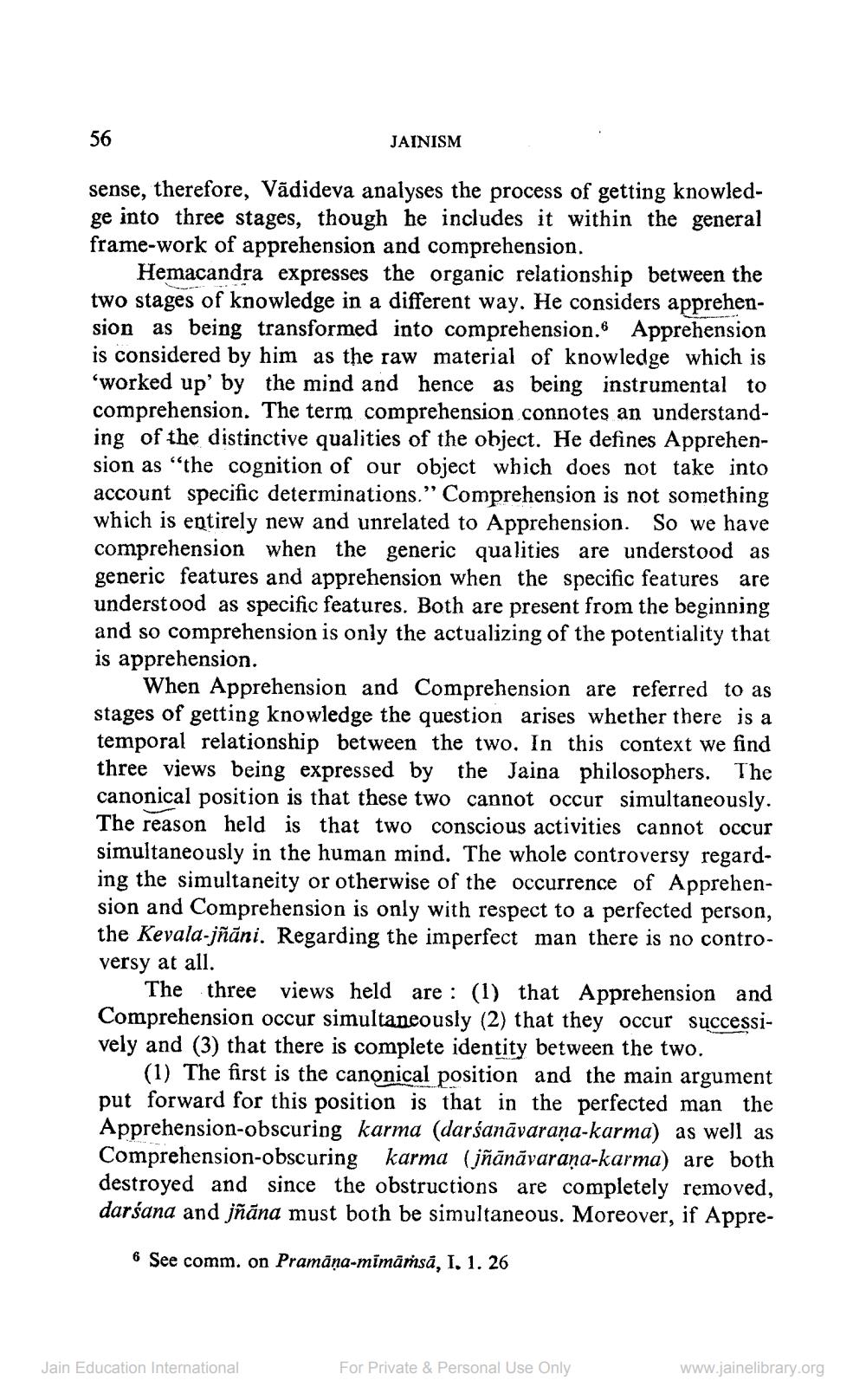________________
56
JAINISM
sense, therefore, Vādideva analyses the process of getting knowledge into three stages, though he includes it within the general frame-work of apprehension and comprehension.
Hemacandra expresses the organic relationship between the two stages of knowledge in a different way. He considers apprehension as being transformed into comprehension. Apprehension is considered by him as the raw material of knowledge which is 'worked up' by the mind and hence as being instrumental to comprehension. The term comprehension connotes an understanding of the distinctive qualities of the object. He defines Apprehension as "the cognition of our object which does not take into account specific determinations." Comprehension is not something which is entirely new and unrelated to Apprehension. So we have comprehension when the generic qualities are understood as generic features and apprehension when the specific features are understood as specific features. Both are present from the beginning and so comprehension is only the actualizing of the potentiality that is apprehension.
When Apprehension and Comprehension are referred to as stages of getting knowledge the question arises whether there is a temporal relationship between the two. In this context we find three views being expressed by the Jaina philosophers. The canonical position is that these two cannot occur simultaneously. The reason held is that two conscious activities cannot occur simultaneously in the human mind. The whole controversy regarding the simultaneity or otherwise of the occurrence of Apprehension and Comprehension is only with respect to a perfected person, the Kevala-jñāni. Regarding the imperfect man there is no controversy at all.
The three views held are: (1) that Apprehension and Comprehension occur simultaneously (2) that they occur successively and (3) that there is complete identity between the two.
(1) The first is the canonical position and the main argument put forward for this position is that in the perfected man the Apprehension-obscuring karma (darśanāvarana-karma) as well as Comprehension-obscuring karma (jñānāvarana-karma) are both destroyed and since the obstructions are completely removed, darśana and jñāna must both be simultaneous. Moreover, if Appre
6 See comm. on Pramāņa-mimāṁsā, 1. 1. 26
Jain Education International
For Private & Personal Use Only
www.jainelibrary.org




